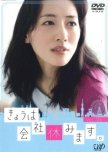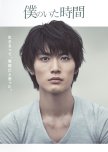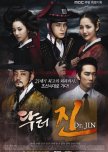
"We Married for Job" paints some of the most prominent recent Japanese cultural phenomena including soushokukeidanshi (herbivore men) and bankon (getting married later in life) as well as older examples such as the role of women and men, the value/happiness of housewives, perception of homosexuality, oyakoukou (filial piety), work dynamics, collectivism and the stress of shuushoku katsudou ("job hunting") among others.
The most striking thing as a student would most definitely be "experiencing" those phenomena. No matter how much one reads or researches, the 'click' moment didn't come to me until watching this drama. Until now, herbivore men had been a mere concept - a niche group of strange men no-one knew about. After Hoshino Gen's endearing performance, however, I felt myself relate and connect to a lifestyle I always found myself unable to picture. More than anything, it was a refreshing take on Japanese society - the good, the bad and the ugly - that doesn't ever really get shown on television in a non-condescending way.
'Nigeru wa haji da ga yaku ni tatsu' not only depicts Japanese society freshly and without disdain, but challenges the everyday thoughts, relationship dynamics and ideals of the Japanese. A moment that particularly stood out for me was in episode one, when the character of Moriyama Mikuri contemplates the worth of housework as an occupation, and how her changing opinion on the monetary and meaningful value of housework changes in further episodes. Another particularly notable example for me was the character of Tsuzaki Hiramasa's ideas about homosexuals and how they change in a brief conversation. Most of all, the drama in essence, had the purpose of challenging traditional and changing ideas of "love". Marriage without love, love with someone you can't marry, the lines and blurs between relationships and the beautiful sentiment of loving ourselves, and allowing ourselves to love others.
As for the drama technically speaking:
CAST
Lovely cast fully of well-known and lesser-known professionals, who provided a diverse range of looks and personality to the show. I had high hopes for Hoshino Gen, and he really delivered in my opinion. Aragaki Yui is just as lovely as ever and never fails to impress. The side characters were also extremely impressive, though I won't delve into it.
SOUNDTRACK
I won't even touch Koi (the ending title, Love) because I think it speaks for itself. The rest of the soundtrack did however put me off a little. It was quite typical of a Japanese drama, which was relatively welcome, but the repetitious backtracks and instrumentals always turn me off a bit. It was no means bad though, and well used -- never a classic "where's the music??" realisation moment.
CINEMATOGRAPHY
Loved it. I'm no expert, but the TV-themed cuts were absolutely hilarious and really well shot as well. You really do notice a difference between drama and the other TV styles it depicts. I also thought the "hanky-panky" (as the subtitlers opted for) was interesting and rather cute. Nothing ever sore to the eye.
I really do love this drama - it is definitely one of the best I have seen objectively. I have my own tastes and favourites, but in terms of quality and just likeability as a drama, I really can't fault it. Anyone who is interested in watching it - try reading a little deeper and you won't be disappointed.
Was this review helpful to you?

One of the aspects that stood out in this show was the acting. Ayase Haruka was fantastic and played her role extremely well. She played a modest and anxious woman who didn't know anything of love. She played the character so that she didn't seem anti-social or obnoxious. From her hurried walk and cute smile to the way she fixed her glasses constantly, the role just fit. The other actors were also very good in this respect, but indeed if I were to especially mention another actor, it would be Tamaki Hiroshi. That man can do anything and have me rooting for him - fantastic role, though it was minor.
The other aspect would be the humour. It's been a while since I've genuinely thought a Japanese drama to be funny, but this one had some especially hilarious scenes and it really brought up the mood when things were getting too serious.
The let-down was more or less the story. At times, it was boring, at other times it was over-the-top. Excessive crying, sudden changes with no warning, plenty of monologues. Also, some of the characters were left very (unfortunately) undeveloped. Asao-san (Tamaki Hiroshi) was a prime example - meant to be the third entry into the so-called 'love triangle' - but really wasn't. He didn't pose any threat whatsoever to the relationship and all in all, was actually a more or less useless character. Another example would be Ooshiro-san (Ryuusuke). He was an interesting character but wasn't focused on at all, which was a pity.
I have watched other romance-comedies with an older female lead and a younger male lead (Last Cinderella, Kimi wa Petto) and this really didn't do the theme justice. Having the sole problem in the relationship being age difference (and the ramifications of that), it wasn't really enough. The age problem was handled fairly well, but I've seen it done better.
Overall it wasn't too bad of a watch, but there were definitely some disappointing parts and I personally would not recommend it to someone else.
Was this review helpful to you?

We begin with Miura Haruma as Sawada Takuto, a struggling student looking for work after giving up on his parent's dream of him taking over their hospital as a doctor, the role now filled by his younger brother. At the start of the show, Takuto is introduced as a schmoozer who had the charisma and the looks but not the sincerity. Haruma played that very well; charming to the enth degree. As the story progresses, so does Takuto's condition, ALS. Being unfamiliar with the disease, Haruma was excellent in portraying his confusion and distress, as well as his despair and hopelessness when he receives his diagnosis. A particularly notable part of the hopelessness he showed was that he still remained charismatic and true to the Takuto at the beginning of the series; he didn't suddenly have some sort of epiphany and spontaneously change his personality.
Takuto's encounters with the other main character of the series, Hongo Megumi (Tabe Mikako), were effortless. Not only are the actors known to have great chemistry off-screen, but it shows in Boku no Ita Jikan as well. Mikako, being the fantastic actress she is, was able to seamlessly pull off her character. She was sweet and caring towards Haruma as well as those she worked with. Though the parts where she stood out most were her moments of sadness. She was able to gracefully express grief, rather than making her reactions too dramatic. Her interaction with Takuto's friend Mukai Shigeyuki (Saito Takumi) were also great. Her reluctance and hesitance was not too strong, but her wavering feelings were readable.
Saito Takumi also played his character excellently. He was able to show his jealousy in such a manner as to not be offensive but somewhat reasonable. It turned his character into someone easily hated into an interesting person that didn't need to have a set 'good-or-bad' side.
The soundtrack was fantastic. Upon downloading the OST, it's surprising to find out that the songs are bright and delicate, rather than dramatic and thunderous. It shows warmth and sadness, rather than chaos and despair. The songs were few however, and it was obvious when one song had been repeated in the show, which was a little disappointing. Rihwa's Harukaze is a perfect accompaniment to the show and was skillfully selected.
The ending of the show is what made everything overall phenomenal. In such a situation, it was fairly obvious as to what would happen, but the gentle surprise and refreshing ending was superbly well done. At a point when thinking there were only two possible things that could happen, the show opened up a third ending that may not have even been considered.
The downfall were the speeches delivered by Takuto. His life and values were inspiring all throughout the show, but the speeches he had made were lacking inspiration. In something even like "Rich Man Poor Woman", the speeches were thought-invoking and interesting, which was the intention of Takuto's, but it didn't follow through. Some more thought spent on the speeches would have paid over ten-fold.
Each episode was utterly melancholic, drawing out tears with every grimace of pain or hidden feeling. It was very sad, but it depends on the viewer as to how much the scenes could have affected them, rather than having the scenes so sad it was natural to cry. Like, making the situation pitiful and heartbreaking instead of purely sad and devastating.
Overall, the drama is very inspirational and somewhat educational with a stellar cast, fantastic plot and excellent soundtrack. Of the melodrama category, it's advised to bring a box of tissues to accompany a drama such as this.
"1 Litre of Tears" and "Ashita Mama ga Inai" may be a suitable matches for this drama, and "Sad Movie" a great movie complement.
Was this review helpful to you?

It drags. Yes, the nightmare you all dread, hiding behind your fortress of speedy Japanese classics and 16-episode Korean wonders. I stopped at episode 18 and didn't pick it up for months. It just slowly came to an unbearable halt. It's not like the story wasn't interesting - it just went on. And on. And /on/. When one problem was finished - oh! there's another one. That itself was not well structured. It was like watching reality TV with plot points being dragged out from the darkest depths of cinematic hell and suck in to keep it mildly entertaining.
That was a huge blow to what otherwise would be... quite a great drama. Believe it or not, the story was pretty good. Despite the former, I genuinely enjoyed the storyline. I mean, it kept you guessing for one thing --- maybe because of a lack of proper explanation, but well, that's one way to do it.
The other fantastic thing was the acting. A fairly star-studded cast graces us with their sublime acting. Kim Jae Joong (who played Kim Kyung Tak) was particularly good (the eyes!).
The other minor let-downs might have been the soundtrack. None of the songs honestly piqued my interest enough to remain in my memory, and I remember noticing the songs entering at really strange times. Not fluid at all. More like a tear falls and suddenly you have a random ballad flash in. If it were faded in and out - or even better -had a better composed OST, it would have been nothing to complain about.
Overall, I myself enjoyed it. The ending was exceptionally good - I enjoyed that very much. The majority of the drama was set in the past (exactly what I like from a historical drama, if it wasn't obvious) and the medical scenes were realistic, and realistically gory. It wasn't over-the-top (though some might disagree) and yet it still played a strong role as a theme in the drama.
If you have a lot of free time, perseverance and like continuous problems in the plot - here's your drama.
Was this review helpful to you?







